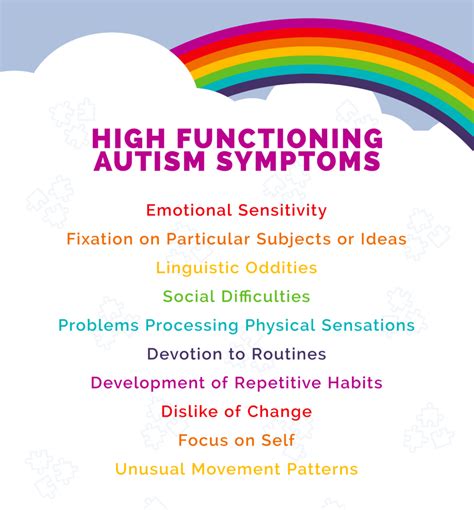
Individuals considered “high-functioning” often exhibit unique behaviors that, while sometimes perceived as odd, may be indicative of their cognitive strengths and coping mechanisms. These quirks, ranging from hyperfocus to specific routines, are not necessarily indicative of underlying disorders but rather individual traits that contribute to their overall success and well-being.
Many individuals display unique behaviors that, while sometimes considered quirky, are often associated with high levels of functionality and cognitive ability. These traits, which can range from intense focus to unusual routines, are increasingly recognized as indicators of individual strengths rather than deficits. A recent examination of these “high-functioning quirks” sheds light on the diverse ways people adapt and excel.
These habits, often misunderstood, can be key components of how high-functioning individuals manage their lives, maintain productivity, and navigate social interactions. This article explores 15 such traits, offering insights into the science and psychology behind these behaviors.
Fifteen Traits Often Observed in High-Functioning Individuals
-
Hyperfocus: The ability to become intensely absorbed in a task, to the exclusion of everything else, is a common trait. This intense concentration allows for deep work and problem-solving but can also lead to neglecting other responsibilities or losing track of time. According to the original article, “Hyperfocus can be a superpower, allowing you to dive deep into tasks and projects.” This intense focus facilitates significant accomplishments.
-
Need for Routine: A strong preference for structured routines and schedules provides a sense of control and predictability. This can manifest as rigid adherence to specific times for meals, work, or other activities. The Yahoo article mentions that routines “help manage anxiety and create a sense of stability.” High-functioning individuals often rely on routines to optimize their efficiency and minimize distractions.
-
Sensitivity to Sensory Input: Heightened sensitivity to sounds, lights, textures, or smells is frequently observed. This can lead to discomfort in certain environments or a need to avoid specific stimuli. The original article notes that “Sensory sensitivities can be overwhelming, but also lead to a heightened appreciation for aesthetics and details.” This sensitivity can also be a source of creativity and innovation.
-
Perfectionism: A drive to achieve flawless results and a critical eye for detail are hallmarks of perfectionism. While this can lead to high-quality work, it can also result in procrastination, anxiety, and difficulty completing tasks. The article highlights that “Perfectionism can be a double-edged sword, driving high achievement but also causing stress and self-criticism.” Managing perfectionist tendencies is crucial for maintaining well-being.
-
Intense Curiosity: A deep and persistent desire to learn and explore new ideas is a common trait. This intellectual curiosity fuels innovation and drives individuals to seek out knowledge and understanding. The original article emphasized that “Intense curiosity fuels a lifelong love of learning and exploration.” This trait often leads to expertise in multiple domains.
-
Difficulty with Small Talk: A preference for meaningful conversations over superficial interactions is often observed. High-functioning individuals may find small talk draining or pointless, preferring to engage in discussions about ideas, concepts, or shared interests. According to the article, “Small talk can feel superficial and unsatisfying to those who crave deeper connections.” They might struggle to initiate or maintain casual conversations.
-
Strong Sense of Justice: A deep-seated belief in fairness and a commitment to advocating for others are characteristic of many high-functioning individuals. This can manifest as activism, volunteering, or simply standing up for what they believe is right. The original article emphasizes that “A strong sense of justice can drive you to fight for what’s right and advocate for others.” This sense of justice often influences their career choices and personal relationships.
-
Unique Sense of Humor: An appreciation for unconventional or intellectual humor is common. High-functioning individuals may enjoy puns, sarcasm, or jokes that require a certain level of knowledge or understanding. The article notes that “A unique sense of humor can be a sign of intelligence and creativity.” Their humor may not always be understood by everyone.
-
Love of Solitude: A need for alone time to recharge and reflect is often observed. High-functioning individuals may find social interactions draining and require periods of solitude to process their thoughts and emotions. The Yahoo article quotes, “Solitude allows for introspection, creativity, and self-discovery.” This time alone helps them maintain their mental and emotional balance.
-
Excellent Memory: A superior ability to recall facts, figures, or events is a common trait. This can be particularly pronounced in areas of interest or expertise. The article mentions that “An excellent memory can be a powerful asset in both personal and professional life.” This ability can be particularly useful in academic and professional settings.
-
Problem-Solving Skills: A natural aptitude for identifying and solving complex problems is frequently observed. High-functioning individuals often approach challenges with a logical and analytical mindset. The original article points out that “Problem-solving skills are essential for success in many fields.” They are often sought after for their ability to find innovative solutions.
-
Creative Thinking: A tendency to think outside the box and generate novel ideas is a hallmark of creative thinking. High-functioning individuals often approach problems from unconventional angles and come up with innovative solutions. The Yahoo article states, “Creative thinking allows you to see possibilities where others see obstacles.” This trait is highly valued in fields that require innovation and adaptability.
-
Difficulty Asking for Help: A reluctance to seek assistance from others, often stemming from a desire for independence or a fear of appearing incompetent, is sometimes observed. This can lead to unnecessary stress and difficulty completing tasks. The original article cautions that “Difficulty asking for help can lead to burnout and missed opportunities.” Learning to delegate and seek support is crucial for long-term success.
-
Honesty and Directness: A tendency to communicate honestly and directly, even when it may be uncomfortable, is a common trait. High-functioning individuals often value transparency and authenticity in their interactions. The article highlights that “Honesty and directness can build trust, but it’s important to be mindful of others’ feelings.” They may sometimes be perceived as blunt or insensitive.
-
Intense Emotional Reactions: High-functioning individuals may experience emotions more intensely than others, both positive and negative. This can lead to heightened empathy and compassion, but also to increased vulnerability to stress and anxiety. The original article notes that “Intense emotional reactions can be both a strength and a challenge.” Learning to manage these emotions is essential for maintaining well-being.
The Science Behind High-Functioning Quirks
While these traits are often observed in individuals who are considered “high-functioning,” it’s important to understand that they are not necessarily indicative of a specific diagnosis or disorder. Rather, they may be the result of a complex interplay of genetic, environmental, and neurological factors.
Some researchers believe that these quirks may be related to differences in brain structure or function. For example, hyperfocus may be associated with increased activity in the prefrontal cortex, the area of the brain responsible for executive functions such as attention and planning. Sensory sensitivities may be related to differences in the way the brain processes sensory information.
Other researchers suggest that these traits may be learned behaviors or coping mechanisms. For example, a need for routine may develop as a way to manage anxiety or create a sense of control in a chaotic environment. Perfectionism may be a response to high expectations or a desire to avoid failure.
Ultimately, the origins of these high-functioning quirks are likely multifaceted and vary from individual to individual. Further research is needed to fully understand the complex relationship between these traits and cognitive function.
Debunking Misconceptions
It’s important to debunk several misconceptions surrounding these traits. First, these quirks are not necessarily negative or detrimental. While some may present challenges, they can also be strengths. Hyperfocus, for example, can be a powerful asset in achieving goals. Second, these traits are not exclusive to individuals with certain diagnoses, such as autism spectrum disorder or ADHD. Many high-functioning individuals without any diagnosed condition exhibit these traits. Third, these traits are not something to be “cured” or eliminated. Rather, they should be understood and managed in a way that maximizes their benefits and minimizes their drawbacks.
“These quirks are not necessarily negative or detrimental. While some may present challenges, they can also be strengths,” emphasizing the importance of understanding rather than pathologizing these behaviors.
Managing and Leveraging High-Functioning Quirks
For individuals who identify with these traits, there are several strategies that can be used to manage and leverage them effectively.
-
Self-Awareness: The first step is to become aware of your own unique traits and how they impact your life. Pay attention to the situations in which these traits are most pronounced and how they affect your mood, energy levels, and productivity.
-
Acceptance: Once you are aware of your traits, it’s important to accept them as part of who you are. Avoid self-criticism or trying to suppress these traits. Instead, focus on understanding their origins and how they can be used to your advantage.
-
Strategic Management: Develop strategies for managing your traits in a way that minimizes their negative impacts and maximizes their benefits. For example, if you have sensory sensitivities, you can create a calming environment by using noise-canceling headphones, dimming the lights, or wearing comfortable clothing.
-
Leveraging Strengths: Identify the ways in which your traits can be used to your advantage. For example, if you have hyperfocus, you can schedule dedicated time for deep work on tasks that require intense concentration. If you have a strong sense of justice, you can volunteer for causes you believe in or advocate for others.
-
Seeking Support: Don’t be afraid to seek support from others, whether it’s a therapist, counselor, or support group. Talking to others who understand your experiences can be incredibly validating and helpful. Learning to ask for help, despite any initial reluctance, is a crucial step towards well-being.
Impact on Relationships and Social Interactions
High-functioning quirks can have a significant impact on relationships and social interactions. While some traits, such as honesty and a strong sense of justice, can strengthen relationships, others, such as difficulty with small talk or intense emotional reactions, can create challenges.
It’s important for individuals with these traits to communicate openly and honestly with their loved ones about their experiences. Explain why you may need alone time, why you struggle with small talk, or why you react intensely to certain situations.
It’s also important to be mindful of the impact your traits have on others. While honesty and directness are valuable qualities, it’s important to deliver your message in a way that is respectful and considerate of others’ feelings.
The Broader Context: Neurodiversity
The discussion of high-functioning quirks is closely related to the concept of neurodiversity, which recognizes that neurological differences are a natural and valuable part of human variation. Neurodiversity advocates argue that conditions such as autism, ADHD, and dyslexia should not be viewed as disorders to be cured, but rather as different ways of thinking and experiencing the world.
By embracing neurodiversity, we can create a more inclusive and accepting society where everyone is valued for their unique strengths and abilities. This also entails recognizing that what might be perceived as a “quirk” could be a manifestation of a different neurological profile.
Conclusion
High-functioning quirks are a diverse range of traits that can be both strengths and challenges. By understanding the origins of these traits, managing them effectively, and embracing the concept of neurodiversity, individuals can leverage their unique abilities to achieve success and well-being. Rather than focusing on eliminating these quirks, the emphasis should be on understanding, accepting, and harnessing them.
The ability to recognize and appreciate these differences is essential for creating a more inclusive and supportive society where everyone can thrive. Recognizing and accommodating these quirks is not just about individual well-being but also about fostering a more diverse and innovative environment.
Frequently Asked Questions (FAQ)
Q1: Are high-functioning quirks indicative of a mental disorder?
A: No, not necessarily. While some high-functioning quirks may overlap with symptoms of certain mental disorders like Autism Spectrum Disorder (ASD) or Attention-Deficit/Hyperactivity Disorder (ADHD), they are not inherently indicative of a disorder. Many individuals without any diagnosed condition exhibit these traits. The Yahoo article makes it clear that these traits should be understood and managed rather than automatically pathologized. It’s important to consult with a qualified mental health professional for a proper diagnosis if concerns arise.
Q2: Can high-functioning quirks be considered strengths?
A: Yes, many high-functioning quirks can be significant strengths. For example, hyperfocus can lead to deep work and problem-solving, intense curiosity can fuel a lifelong love of learning, and a strong sense of justice can drive individuals to advocate for positive change. The article emphasizes that understanding and leveraging these traits can lead to success and well-being.
Q3: How can I manage my high-functioning quirks if they are causing me distress?
A: Several strategies can help manage high-functioning quirks that cause distress. These include self-awareness (understanding your specific traits and how they impact you), acceptance (embracing your traits as part of who you are), strategic management (developing strategies to minimize negative impacts and maximize benefits), leveraging strengths (identifying ways to use your traits to your advantage), and seeking support from therapists, counselors, or support groups.
Q4: How do high-functioning quirks affect relationships and social interactions?
A: High-functioning quirks can have both positive and negative effects on relationships and social interactions. Traits like honesty and a strong sense of justice can strengthen relationships, while others like difficulty with small talk or intense emotional reactions can create challenges. Open communication, mindfulness of others’ feelings, and a willingness to adapt can help navigate these challenges. The article suggests openly communicating your needs and challenges with loved ones.
Q5: What is the connection between high-functioning quirks and neurodiversity?
A: The concept of high-functioning quirks is closely related to neurodiversity, which recognizes that neurological differences are a natural and valuable part of human variation. Neurodiversity advocates argue that conditions like autism, ADHD, and dyslexia should not be viewed as disorders to be cured, but rather as different ways of thinking and experiencing the world. Embracing neurodiversity promotes a more inclusive and accepting society where everyone is valued for their unique strengths and abilities. The Yahoo article tacitly aligns with this perspective by emphasizing the importance of understanding and accepting these traits rather than trying to eliminate them.









